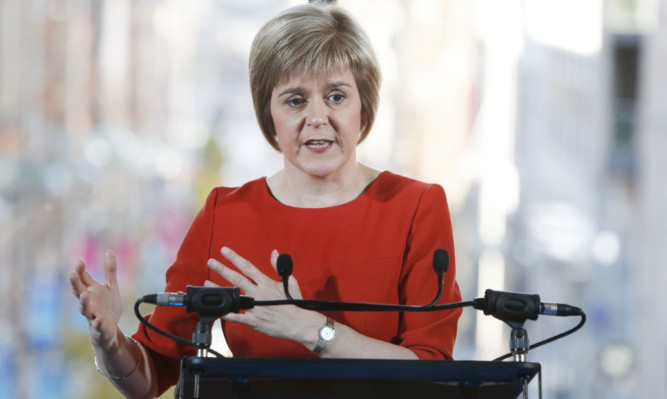
The SNP certainly lost the battle for independence but may have won the war for Scottish hearts and minds.
Almost 40,000 folk joined the party since last week’s defeat doubling membership in just seven days.
SNP chiefs are now figuring out how to cram a tiny fraction of Britain’s third largest party into Perth Concert Hall for November’s annual conference.
Only delegates can vote but any member can turn up and watch. Will that prompt a move to Hydro in Glasgow Scotland’s Yes capital a bigger but less intimate venue?
Or a Fresher’s style mini conference for new members before the bigger policy-making event? It may be a headache but it’s one the Scottish Labour Party would love to have.
SNP workers say many new members are disillusioned former Labour voters and trade unionists.
Between 30 and 40% of Labour voters backed Yes to reject austerity Westminster’s only answer to economic mismanagement and market failure.
But since the Big Vote they’ve heard Ed Balls at the Labour conference promising to freeze child benefit, axe the winter fuel allowance, raise the pension age and even though he pledged to raise the minimum wage, that won’t kick in until 2020.
Meanwhile, Labour grandee Jack Straw wants a rule change so Scots can never hold an independence referendum again. Nice.
All this within a week of the vote when Labour should have been persuading Scots their interests are assured in a shiny, re-born, federal UK.
It seems that ain’t coming along any time soon. Maybe that was the tin lid for many ex-Labour supporters who’ve lost the faith but kept the party habit and joined the SNP.
Mind you, joining is one thing staying is another. Will the newcomers settle easily into a party with different traditions, policies and its own ways of doing things?
The SNP were once known as Tartan Tories and although the party was pulled left of centre, there are still people and outlooks that may jar with the latest recruits.
The party has grown relatively easily from a pressure group to the powerhouse it is today. But the SNP will have to put on a welcoming party bigger than the Commonwealth Games’ to make sure their new ex-Labour members opt to stay.
Other newcomers have never been in a political party before and that could cause trouble of a different kind.
Folk who were part of an informal, accessible, un-bureaucratic wider Yes movement might find life inside a political party a wee bit rule-bound, un-spontaneous and stultifying.
And of course many Yes voters remain outside the SNP in the Green party and in campaign groups like the artist-based National Collective, Radical Independence (who organised the mass canvass of Scotland’s big housing estates), policy researchers Common Weal and Women for Independence.
Will they be kept in the loop? Or will the massively powerful SNP shove them out of the way?
All of this creates a challenge to the very way political parties have traditionally been run. Can the SNP adapt and thrive?
That largely depends on Nicola Sturgeon the likely new leader of the SNP and I’d say she’s well placed to meet the challenge.
Alex Salmond’s talented deputy has probably spent more time “on the stump,” with non-party activists than any other SNP minister.
She’s never been an MP and doesn’t have the uptight Mother of Parliaments as a template for how politics should be done. And she’s young.
So is there a chance the 45% who voted Yes will change the face of Scottish politics? So far, so hopeful.

Enjoy the convenience of having The Sunday Post delivered as a digital ePaper straight to your smartphone, tablet or computer.
Subscribe for only £5.49 a month and enjoy all the benefits of the printed paper as a digital replica.
Subscribe